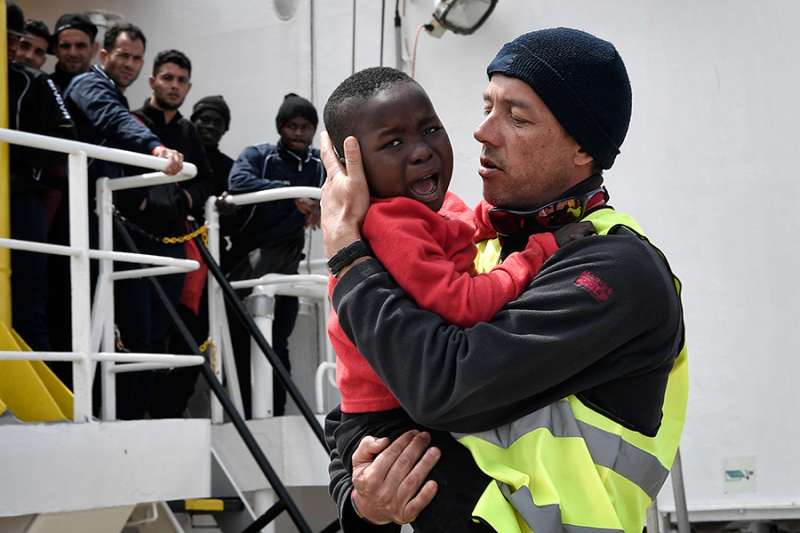The Archdiocese of Valencia, Spain is preparing resources for more than 600 immigrants on board a rescue boat that was denied entry into Italy this week.
Cardinal Antonio Cañizares of Valencia said God is calling the local people to welcome the immigrants.
“We can't let these people who are suffering be stranded.”
On June 11, the government of Italy refused entrance to 629 immigrants on board the Aquarius, a humanitarian aid vessel operated by SOS Mediterranée and Doctors Without Borders, two groups that rescue immigrants on small vessels in the Mediterranean Sea.
Among the passengers are 123 children and seven pregnant women.
The government of Spain has offered to receive the immigrants – mainly sub-Saharan Africans – and is opening the port of Valencia for their arrival.
After hearing this news, Cardinal Cañizares launched a coordination office to connect the immigrants with resources from the archdiocese.
The network includes charities, parishes, and diocesan schools, as well as aid groups that are already involved in helping immigrants in the city.
In an interview with the TreceTv network, Cardinal Cañizares explained that “in cooperation with the public administration,” they have made available “buildings, homes, personnel to help with everything that may be needed.”
“We stand ready, simply, so that these poor people who have had to leave their homeland and go through so many calamities on the Mediterranean, that when they reach us they feel welcome and treated as persons, with every effort made to help them,” the cardinal said.
Besides providing for basic needs, Cardinal Cañizares said he hopes the immigrants find “great affection and love.”
According to media outlets, the immigrants will undergo a medical examination after arriving in Valencia. The authorities will then determine whether they will be classified as refugees or undocumented immigrants without proper legal status. Categorization as a refugee allows for lodging without police supervision and a small monetary allowance.
According to Cardinal Cañizares, the Red Cross will be in charge of the first phase of care, then after that the UNHCR (United Nations High Commissioner for Refugees) and the diocese's Caritas and immigration services will take over.
“Starting next week, we will collaborate on the more specific aspects of receiving them, not only basic but also ongoing needs, such as education and foster care,” he said.
The local Church will also help in offering healthcare services, as many of the immigrants may be in poor health from their countries of origin or their time on the Mediterranean Sea.
“Europe is very privileged, [it] can share what it has and it can share more of what it does,” the cardinal said.
Noting the Christian roots of Europe, he stressed that “we cannot hide that, without incurring the betrayal of Europe itself.”

